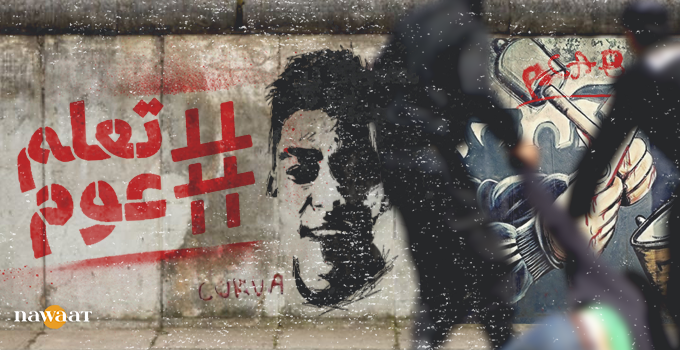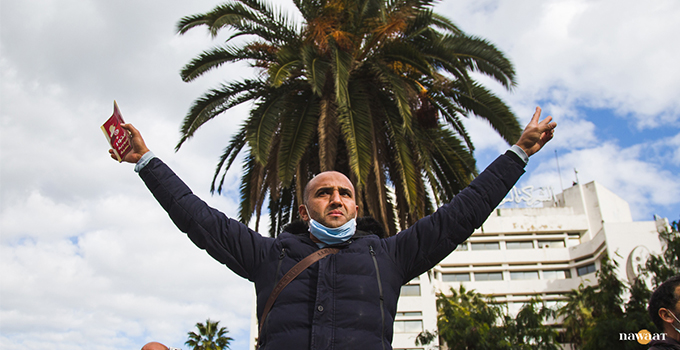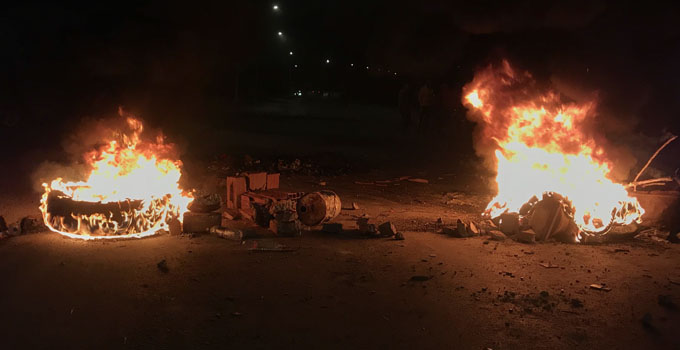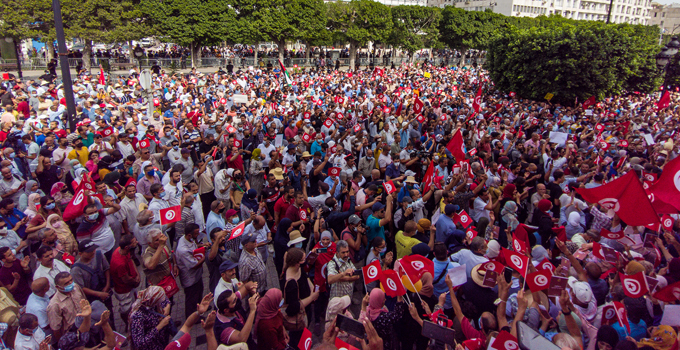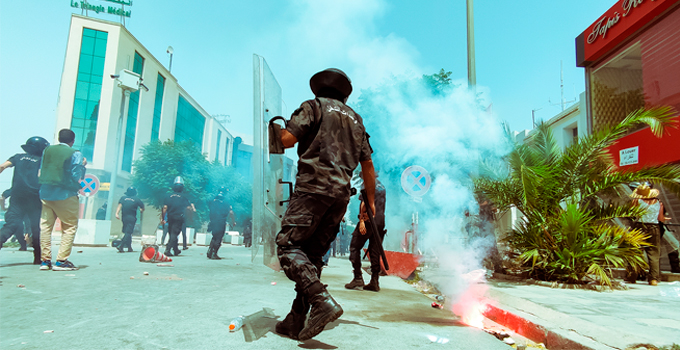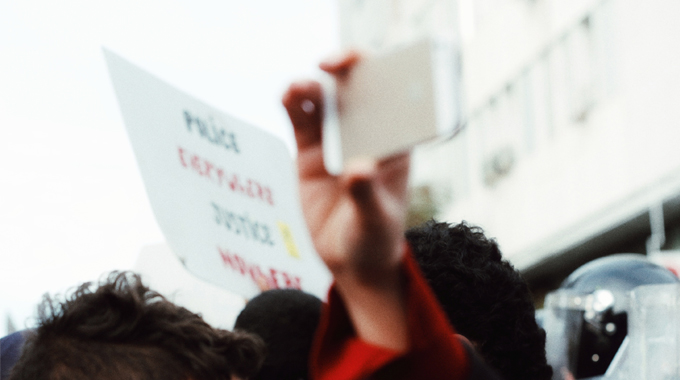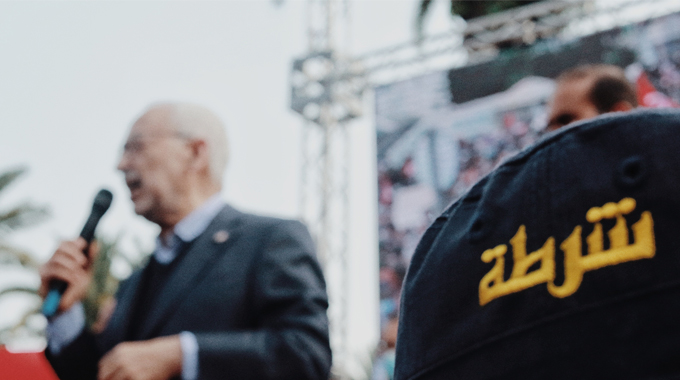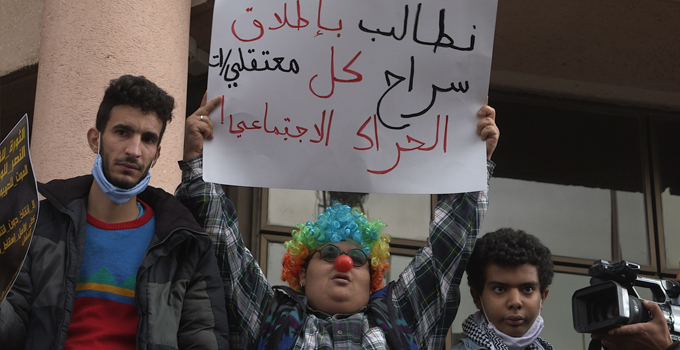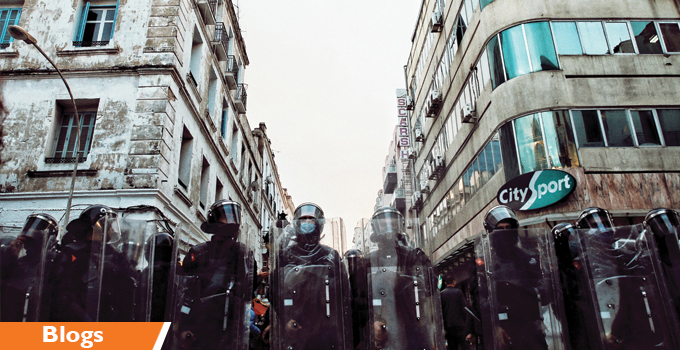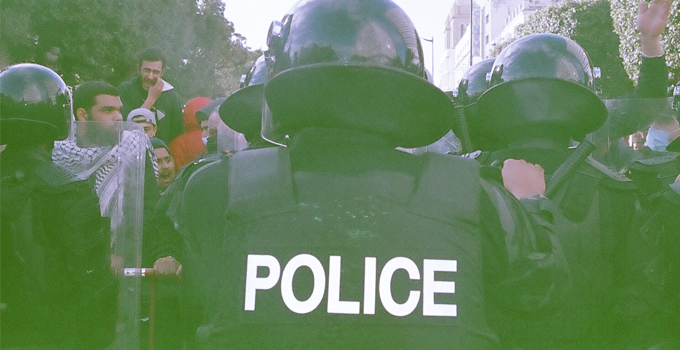« The Omar Laâbidi case has been pushed back to center stage thanks to the « Learn to swim » campaign, and to the efforts of civil society and “Ultras” (groups of soccer team supporters). This has roused the anger of Tunisia’s security apparatus, inciting its recourse to intimidation », says one activist. In the midst of this highly charged atmosphere, police officers are responding through the blows of their batons.
